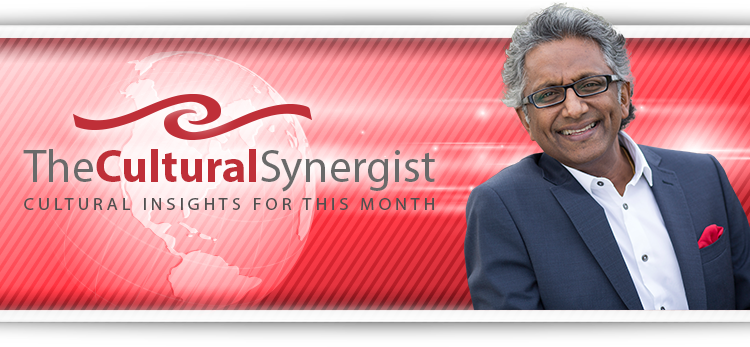| ISSUE 118 |
 |
Mysteries and PuzzlesEarlier this month, I attended a conference where Malcolm Gladwell was the keynote speaker. Gladwell is a writer for the New Yorker and has written a number of books. Some of his books include The Tipping Point; Blink; David and Goliath; What the Dog Saw and Outliers. I have always found his books to be though provoking.
One of the concepts he spoke about at the conference was “Mysteries and Puzzles”. According to Gladwell, puzzles are areas where there is a lack of information; in other words there are bits and pieces of information available and what we are looking for is to fill in the void. As an example, consider the research on ASD - Autism Spectrum Disorder; we still do not know what causes autism or how and why it manifests in some people and not others. Hence, continuing research is necessary to fill in the puzzle. Mysteries, on the other hand exist where we have ample information and the challenge is to make sense of this in a coherent and useful manner. Consider the topic of ‘Working in Malaysia’, where there is a lot of information available. For example in Malaysia, there is great value placed on hierarchy, titles, education, qualifications, family names have a higher level of significance compared to Australia. It’s one thing to know about hierarchy in Malaysian culture but it’s another to think about how it impacts your interactions:
I think developing Cultural Intelligence is more of a mystery rather then a puzzle – there is ample information available but it’s more about utilising the right information at the right time in the right manner to achieve the desired outcomes.
 Ask Dr TomNewsletter Reader Question: The whole concept of Cultural Intelligence is new for me. What is it and how do I develop it?
Dr Tom's thoughts: Cultural intelligence (CQ) is the ability to deal effectively with people from different cultural backgrounds. There are four components to cultural intelligence – drive, strategy, knowledge and skills. CQ Drive is motivation. Some people have an intrinsic drive, a deep desire to contribute to the world. In international interactions, these individuals tend to be involved with NGOs, international volunteering, missionary work, etc. Others have more of an extrinsic drive – they are individuals motivated to interact internationally because it’s part of their job. They could have been promoted; they could have changed roles that require international interactions. Some individuals have a combination of both intrinsic and extrinsic motivations. As a first step in developing CQ, it is useful to understanding what your motivations or drivers are. CQ Knowledge is the information regarding cultural differences and similarities. This will not only include the geographic, economic and administrative information but also the values, norms and leadership expectations of the different cultures you are interacting with. As discussed earlier in this newsletter, the topic is more a ‘mystery’ rather then a ‘puzzle’. So, the second component to becoming culturally intelligent is having the appropriate knowledge about different cultures you are interacting with. CQ Strategy is more about planning. It’s not enough to merely turn up for a meeting armed with drive and knowledge. To increase your effectiveness with people of other cultures you need a game plan. Things may not work out according to the plan; hence you also require a high degree of flexibility and being able to perhaps make sense of the ambiguities that inevitably occur during cross-cultural interactions. Thus, not only do you need a plan, you also need a way to evaluate how well your plan is working and then be able to adjust accordingly. Being strategic in this way enhances your CQ. CQ Skills is the application of all the above; it is having the cultural agility to be able to apply verbal skills such as knowing how and when to use pauses, silence and the ability to paraphrase. At the same time, being aware of non-verbal skills and body language. It’s one thing to know how to behave when you’re engaging with people from a different culture; it’s an entirely different thing to put that knowledge into practice. This aspect of CQ is where the ‘rubber meets the road’ – the demonstration of CQ which is developed by exposure, practice and feedback.  Book Recommendation OPEN SOURCE LEADERSHIP: Reinventing Management, When There Is No More Business as Usual, Rajeev Peshawaria, CEO, Iclif Leadership and Governance CenterRajeev Peshawaria, (CEO of the Iclif Leadership and Governance Center), is a business leadership and strategy consultant. He specialises in providing coaching, consulting and advisory services globally.
In his book, Open Source Leadership, Peshawaria questions some of the most common misperceptions, illusions and information about leadership theory. He argues why the most relied-upon management practices today are ineffective, and provides a new, counterintuitive model for seizing the competitive edge in any industry. He offers practical tools and techniques to source talent and innovation easier and quicker. |
